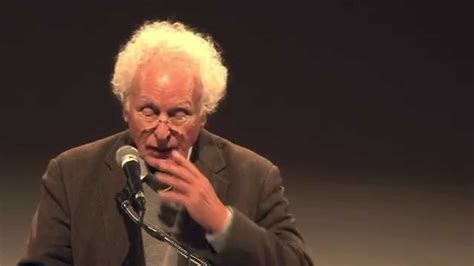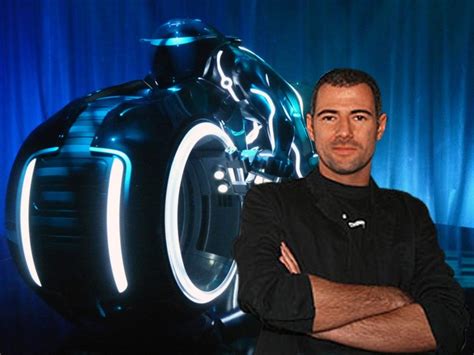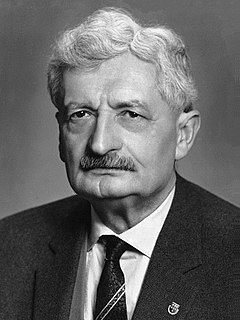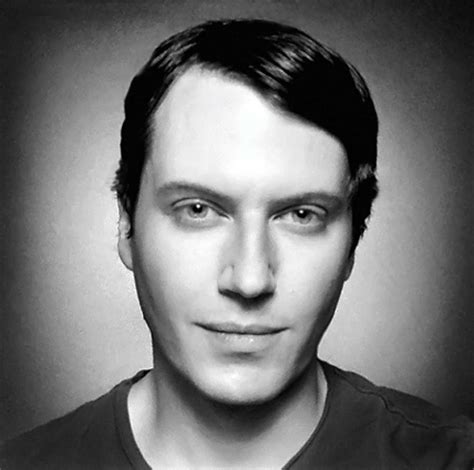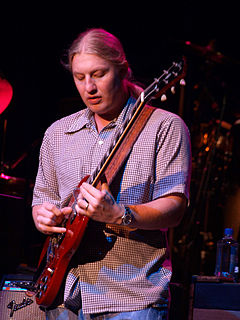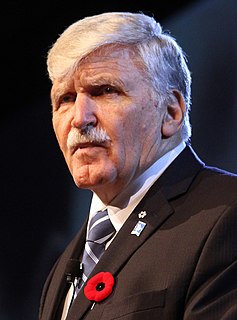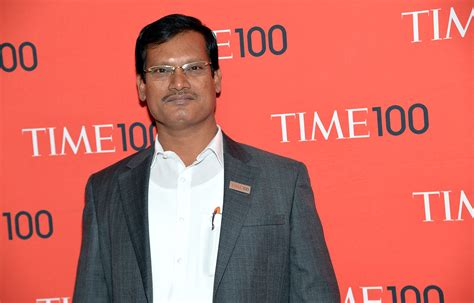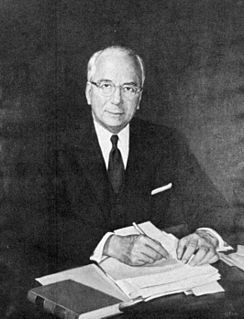Top 1200 Vending Machines Quotes & Sayings - Page 19
Explore popular Vending Machines quotes.
Last updated on November 7, 2024.
Where I'm is one of those stair climbing machines the agent has installed. You climb and climb forever and never get off the ground. You're trapped in your hotel room. It's the mystical sweat love lodge experience of our time, the only sort of Indian vision quest we can schedule into our daily planner.Our Stair Master to Heaven.
Without design thinking, the only sane response to a problem is to make a smaller, "safer" move. Smaller moves don't get you very far. They key is to let out the leash on imagination, but not take it off the leash. Imagination is the only path to innovation. It's a good example of something that humans do better than machines.
The ideal set up by the Party was something huge, terrible, and glittering-a world of steel and concrete, of monstrous machines and terrifying weapons-a nation of warriors and fanatics, marching forward in perfect unity, all thinking the same thoughts and shouting the same slogans, perpetually working, fighting, triumphing, persecuting-three hundred million people all with the same face.
Search is now more than a web destination and a few words plugged into a box. Search is a mode, a method of interaction with the physical and virtual worlds. What is Siri but search? What are apps like Yelp or Foursquare, but structured search machines? Search has become embedded into everything and has reached well beyond its web-based roots.
Doing research for 'Penumbra,' I read quite a bit about the early history of printing, and the more I did, the more it sounded like... the Internet today. There was crazy competition and upheaval; there were constant arguments about new techniques, new materials, new machines; and, of course, there were fortunes to be made.
Fire, ice, asteroids and pole shifts are bogeymen with which we distract ourselves from the real threat of our time. In an age when everyone invents his own truth, there is no community, only factions. Without community, there can be no consensus to resist the greedy, the envious, the power-mad narcissists who seize control and turn the institutions of civilization into a series of doom machines.
We must not suppose that, because a man is a rational animal, he will, therefore, always act rationally; or, because he has such or such a predominant passion, that he will act invariably and consequentially in pursuit of it. No, we are complicated machines; and though we have one main spring that gives motion to the whole, we have an infinity of little wheels, which, in their turns, retard, precipitate, and sometime stop that motion.
All employees are obliged to act in concert, to behave in accordance with corporate form and corporate law. If someone attempted to revolt against these teets, it would only result in the corporation throwing the person out, and replacing that person with another who would act according to the rules. Form determines content: Corporations are machines.
Writers today must navigate the shifting verbal currents of the post-Gutenberg era. When does jargon end and a new vernacular begin? Where's the line between neologism and hype? What's the language of the global village? How can we keep pace with technology without getting bogged down in buzzwords? Is it possible to write about machines without losing a sense of humanity and poetry?
The modern recording studio, with its well-trained engineers, 24-track machines and shiny new recording consoles, encourages the artist to get involved with sound. And there have always been artists who could make the equipment serve their needs in a highly personal way - I would single out the Beatles, Phil Spector, the Beach Boys and Thom Bell.
We need to have nature back in our atmosphere. There might be a turning point of going backward - within a few thousand years we are going back to the Stone Age! There are many scenarios [with] the robot technologies: Humans no longer need to walk; machines can produce products and food and everything. You might not be able to recognize what's false and what is real.
Once I heard about the electronic voting machines, and how they weren't gonna be audited, and no one would be able to go in and verify what the votes were. And then the exit poll thing - wasn't that kind of weird? How the exit polls didn't match up to the voting... I feel like, you know, they dropped a couple lines of code in here and there, and swung a couple states in their direction.
Science, is the creation by humans of a particular paradigm and methodology for discovering truth and understanding reality. Hence it can never fully reflect the hidden face of humanity, its creator, in the same sense that a computer can never become fully human or know what it means to be human: however sophisticated, these machines will forever remain mere artifacts of humanity.
There is one other error in the Gondsman's line of resoning, I believe, on ap urely emotional level. If machines replace achievement, then to what will people aspire? And who are we, truly, without such goals? Beware the engineers of society, I say, who would make everyone in all the world equal. Opportunity should be equal, must be equal, but achievement must remain individual.
I met designers that are in the business for ten years in the movies, and their biggest complaint is things don't look anything like they were designed. Look at my drawing! But nobody ever sees the drawing, that's the thing. So I knew right from the beginning that I would design everything in 3D on my computer, and those models literally went to the machines. So every little radius on most of the vehicles you see there, I built with my mouse and keyboard.
In the course of writing 'First Light,' I climbed all over and through the Hale Telescope, where I found rooms, stairways, tunnels, and abandoned machines leaking oil. My notebooks show tooth-marks where I gripped them with my teeth while climbing around inside the telescope, and the notebooks are stained with Flying Horse telescope oil.
I studied in London in 1968. Our school had a separate department of tropical architecture. Of course it was totally unfashionable, partly because nobody wanted to think about colonialism, but basically what you learned there was that, OK, the sun is here, so you should create natural ventilation here - an unbelievable amount of really sound principles that have been completely abandoned, so now everything is air conditioned with big machines.
I embrace technology and I just think that in 1984 when James Cameron wrote about the technology, everyone thought he was totally way out there and it was science fiction. Now it's almost reality what he talked about. The machines have taken over, except they have not become self-aware, like in Terminator. So this is really one thing that we have to watch out for, but I think technology is good.
I was the first artist, I think, to ever do an all-keyboard album. There were things that resembled it, like Stevie Wonder. A lot of his stuff was on keyboards, but he used brass and he used other things as well. I was the first artist, also, to use drum machines. I was really the one who kind of started that whole thing.
But if we establish the working hypothesis that the UFOs are machines, we also have to assume the following:
a) They are not built by human beings..
b) They are flying by means of artificial fields of gravity..
c) They produce high-tension electric charges in order to push the air out of their paths, so it does not start glowing, and strong magnetic fields to influence the ionized air at higher altitudes.
I think I was lucky to come of age in a place and time - the American South in the 1960s and '70s - when the machine hadn't completely taken over life. The natural world was still the world, and machines - TV, telephone, cars - were still more or less ancillary, and computers were unheard of in everyday life.
If you see cattle as a source of organic manure, animal energy, as well as milk products, then Indian cattle are not inferior. It is only when you measure them as milk machines that they become inferior. What if we measured the dairy cows of America or Jersey or the Swiss Alps in terms of their work functions? They would be terribly inferior.
In fact, numerous scientific laboratory tests and field observations have led to the conclusion that animals are conscious, intelligent, emotional beings. They are not machines and truly feel physical pain when it is inflicted upon them. They are capable of experiencing a wide range of emotions, including loneliness, embarrassment, sadness, longing, depression, anxiety, panic, and fear, as well as joy, relief, surprise, happiness, contentment, and peace.
My family was in two businesses - they were in the textile business, and they were in the candy business. The conversations around the dinner table were all about the factory floor and how many machines were running and what was happening in the business. I grew up very engaged in manufacturing and as part of a family business.
The threat to man does not come in the first instance from the potentially lethal machines and apparatus of technology. The actual threat has already affected man in his essence. The rule of Enframing threatens man with the possibility that it could be denied to him to enter into a more original revealing and hence to experience the call of a more primal truth
To see ten thousand animals untamed and not branded with the symbols of human commerce is like scaling an unconquered mountain for the first time, or like finding a forest without roads or footpaths, or the blemish of an axe. You know then what you had always been told -- that the world once lived and grew without adding machines and newsprint and brick-walled streets and the tyranny of clocks.
Well, jobs are a great thing. You have to be a bit careful: If you raise the minimum wage, you’re encouraging labor substitution and you’re going to go buy machines and automate things - or cause jobs to appear outside of that jurisdiction. And so within certain limits, you know, it does cause job destruction. If you really start pushing it, then you’re just making a huge trade-off.
If you take psychedelics and the Internet and music and put all of that together you have the basis for a new community that is wider and deeper than you know. The people who are building the new machines, who are designing the new circuitry, who are writing the new code are ALL freaks. They work for capitalist dogs, of course, because we all do, but the creative thrust of these technologies is being driven by people just like you and me.
That machines will surpass us in intelligence is inevitable. What it means is unknowable. Will they be sentient? What will they care about in the sense that determines our human motivations? All the theorizing by the experts and non-experts makes for interesting conversations and dramatic headlines, but it's more likely we will be surprised by how our technology develops and how it is used, as we so often are.
A lot of the gear came out of some of the old studios here in New York City. We picked up a lot of old microphones, reverb tanks, tape machines, so yeah, we try to record the old way, which takes more time and energy, but it certainly feels better when you're getting to the end of the process of making a record.
Now all of us deplore this vast military spending. Yet, in the face of the Soviet attitude, we realize its necessity. Whatever the cost, America will keep itself secure. But in the process we must not, by our own hand, destroy or distort the American system. This we could do by useless overspending. I know one sure way to overspend. That is by overindulging sentimental attachments to outmoded military machines and concepts.
We can achieve the utmost in economies by engineering knowledge; we can conquer new fields by research; we can build plants and machines that shall stand among the wonders of the world; but unless we put the right man in the right place-unless we make it possible for our workers and executives alike to enjoy a sense of satisfaction in their jobs, our efforts will have been in vain.
It may seem unimaginable to you that child soldiers exist and yet the reality for many rebel and gang leaders, and even state governments, is that there is no more complete end-to-end weapon system in the inventory of war machines than the child soldierMan has created the ultimate cheap, expendable, yet sophisticated human weapon at the expense of humanity's own future: its children.
To conjure a particular knowledge you visualize an architectural structure and then you walk around and see the details that then bring back the words or the poetry or the lines of thought. Memory's going extinct because we rely on machines and copies and so on. The idea of working with structures that conjure dreams, personages, history, time, that can be contained in this way as you walk through your mind, is a challenge.
With its array of gadgets and machines, all powered by energies that are destructive of land or air or water, and connected to work, market, school, recreation, etc., by gasoline engines, the modern home is a veritable factory of waste and destruction. It is the mainstay of the economy of money. But within the economies of energy and nature, it is a catastrophe. It takes in the world's goods and converts them into garbage, sewage, and noxious fumes-for none of which have we found a use.
Every year, in our country, we churn out more job seekers rather than job creators. We have to look at new business models, identify a problem, and work on a solution for the same. Today, the machines I have created have provided employment to many women in the rural areas across the country. Why can't youngsters follow suit?
I kind of pride myself on coming onto things that are well-oiled machines and finding a way to bring what I bring and fit in, and raise it to another level if I can. And this [Code Black ] has been another one of those really fun success stories, much like Parks And Recreation, although obviously on the other side of the comedy/drama equation.
Today's dissenters mainly focus their attention and expend their energies on the most inconsequential of trivia. ...Allegedly serious intellectuals quibble endlessly over such ridiculous trivialities...In the meantime, the public is lulled into a perilous somnolence, spoon-fed pap, and palpable untruths, many of which are turned out by special-interest and pressure groups and well organized propaganda machines.
We are afraid of ourselves and our own unconscious minds. When we are building something that reflects us, it's the one thing we're all afraid to face. We're afraid to face ourselves. Building machines that mirror our consciousness is a very frightening proposition because we have seen how evil people can be.
One of my optimistic prophecies is based on the assumption that machines could have the best algorithms in the universe, but it will never have purpose. And the problem for us to explain purpose to a machine is because we don't know what our purpose is. We have the purpose, but we still ... When we look at this global picture, a universal picture, to understand what is our purpose being here on this planet? We don't know.
The girl wondered: These policemen... didn't they have families, too? Didn't they have children? Children they went home to? How could they treat children this way? Were they told to do so, or did they act this way naturally? Were they in fact machines, not human beings? She looked closely at them. They seemed of flesh and bone. They were men. She couldn't understand.
Every time the diaphragm winks, the camera repeats the question that now travels through cyberspace and invades, as a modern virus, the memories of machines, men and women. The question that history sets forth. The question which forces us to define ourselves and whose answer makes us human: On which side are you?
We couldn't build quantum computers unless the universe were quantum and computing. We can build such machines because the universe is storing and processing information in the quantum realm. When we build quantum computers, we're hijacking that underlying computation in order to make it do things we want: little and/or/not calculations. We're hacking into the universe.
Look back on the utopian dreams of the previous century, or even the century before that, where people thought machines would ultimately give us a quality of life where our needs would be taken care of so we could all basically be artists together in the evening, after we had fished, hunted, raised cattle - or whatever it was Marx imagined for us.
In contrast, markets - oft mythologized as "natural" are the most unnatural things going. Libertarians will tell you "market laws are laws of nature", what baloney. Markets - and the other great modernist cornucopian tools - are magnificent wealth generating machines, built ad-hoc, through trial and error, constantly fine-tuned and refined, tinkered, adjusted.
Here! 'Not thread nor glue, not nails nor screws, will ever self and shadow wed.' Helpful, those poet-types. Perhaps this one: 'Seek the grimy queen of dread machines, if you your errant shadow miss.' Now that's quite good! As a Prophetic Utterance, Third Class (Vague Hints and Mysterious Signs), you couldn't ask for better. It's downright plain-spoken!
Without doubt machines will be able to determine the means and avenues to goals, but men will continue to set the goals themselves. For what machine can ever apply the considerations of compassion and justice which, as man's enlightenment spreads ... will enter ever more into the decisions that affect his future ... in the universe?
I was always interested in technology. When personal computers came out, I was one of the first to pick one up and begin playing with it. My hobbies tend to be not about going fishing or hiking, but about playing on machines. Just like some people like helicopters and tanks and cars, I like technology a lot.
Commercial jazz, soap opera, pulp fiction, comic strips, the movies set the images, mannerisms, standards, and aims of the urban masses. In one way or another, everyone is equal before these cultural machines; like technology itself, the mass media are nearly universal in their incidence and appeal. They are a kind of common denominator, a kind of scheme for pre-scheduled, mass emotions.
We may hope that machines will eventually compete with men in all purely intellectual fields. But which are the best ones to start with? Many people think that a very abstract activity, like the playing of chess, would be best. It can also be maintained that it is best to provide the machine with the best sense organs that money can buy, and then teach it to understand and speak English.
Before information age, living standards basically were flat. Since then, they've been growing 2 percent a year were about 30 times richer. So technology, machines is really, you know, arguably the most important thing that's happened to humanity in terms of our living standards. You could look to the introduction of digital computers in the 1950s.









